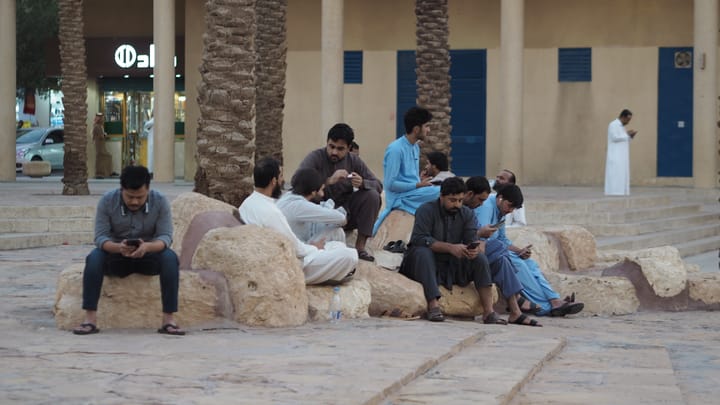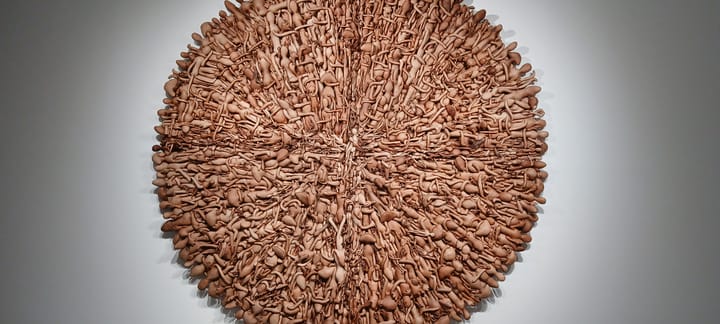numbers of jailed writers: PEN does not divest
[from this source:] … tracks the detention and imprisonment of writers, and in 2023, at least 339 writers were detained or imprisoned around the world for their writing or otherwise exercising their freedom of expression. Since the first edition of the Index was published in 2019, we have witnessed a steady increase in the number of writers jailed globally.
the report’s “key takeaways” are worth citing, before getting on to why I am:
- The number of writers jailed reached a five-year high, with at least 339 behind bars during 2023, an increase of 9 percent from 2022.
- China, already the world’s top jailer of writers, registered a significant increase, exceeding 100 writers behind bars for the first time. The majority were jailed for online expression that was critical of official policies or expressed pro-democracy viewpoints.
- The crackdown on writers and the creative community continued in Iran, with 13 new arrests and the silencing of previously detained writers through various conditions placed on their release. Women who wrote or advocated against the compulsory hijab remained particularly at risk, and Iran jails the highest number of female writers worldwide.
- War and conflict had a significant impact on writers in 2023, as the crackdown on dissent in both Israel and the Occupied Palestinian Territory (OPT) and in Russia resulted in substantial increases in the number of jailed writers, placing both countries in the top 10 for the first time.
- As the annual Freedom to Write Index marks its fifth edition, an analysis of trends over the past five years shows a clear and steady increase in the number of writers jailed globally, from 238 in 2019 to 339 in 2023. Notable increases were seen in the number of female writers jailed, from 35 to 51, as well as in the number of jailed writers classified as online commentators, from 80 to 180.
here are the phrases used to denigrate the incarceration of writers:
writers engage in something called “free expression” with the meaning that
their writing plays a “significant role” in “promoting critical inquiry” …
and “fostering connections between people” …
and (a very interesting one) “cultivating visions of a better world anchored in fundamental human rights”
these phrases are from that source too. Then, writers…
- recognize the power of words to affirm historical truths,
- develop or maintain culture,
- hold individuals and institutions to account.
It is for these reasons that PEN says,
repressive governments and ruling authorities the world over seek to suppress or control writers.
For the same reasons we members of the international community, whatever that means, MUST “assume a greater role in protecting and supporting writers, and ensuring their ability to freely express themselves.”
“But,” says PEN, singling them out, “democracies have been slow to understand that attacks on writers are both the precursor to and a consequence of broader attacks on human rights, democracy, and free expression.”
The turn democracies might be said to have made, explaining why democracies and not autocracies, theocracies or Real Existing Socialisms have been singled out, is to encourage free expression for the frictionless exchange of information; which must be something like Erica Jong’s “zipless fuck.”
PEN America hit the headlines for its cancellation of the 2024 World Voices festival.
PEN was denounced for its response to the violence unleashed by the state of Israel on the people of Palestine. This has been called a genocide in line with similar and much earlier genocides of colonised and disenfranchised peoples.
The Guardian reports that 28 of the nominated 61 authors and translators withdrew their books from consideration for PEN’s annual award ceremony. The festival was due to take place 8 May in New York and Los Angeles.
Among the writers to come out in protest at PEN’s failure to condemn Israeli actions are Naomi Klein, Michelle Alexander, Hisham Matar, Maaza Mengiste, Susan Muaddi Darraj, Isabella Hamad and Zaina Arafat. This so-called “prominent group” of writers, along with others, signed an open letter accusing PEN of hypocrisy. The letter reads in part,
In the context of Israel’s ongoing war on Gaza, we believe that PEN America has betrayed the organization’s professed commitment to peace and equality for all, and to freedom and security for writers everywhere.
The open letter to PEN is doing, in other words, what PEN says is the writer’s job, promoting critical inquiry, fostering connections between people and cultivating visions of a better world anchored in fundamental human rights. It is undertaking exactly that which the democracies have been slow to understand, presumably outside of democracies, is at risk; here it is happening in the USA, a case in point; and under the aegis of a nonprofit international organisation. This undertaking is that of all writing:
- to recognize the power of words to affirm historical truths,
- to develop or maintain culture,
- and to hold individuals and institutions to account.
Hypocrisy is of little personal interest. What I find interesting is the reduction of writing to its weakest elements, to its public utility; a reduction in line with human-rights discourse’s own.
Writing or literature is constrained to the problems it chooses and it will, as Deleuze writes, get the solutions it deserves.
Writing or literature is not free. It does not express. It perceives. It, in D.’s words, on the phone this morning, goes into the funerary pit and comes out spewing its anus out covered in dismembered bodies; it has to and does so freely out of the realisation that being equal to the human castatrophe demands it, demands it of those who would write of that condition at all.
To D. I said, that’s what literature does.
So it’s strange seeing proof of it in PEN’s estimation of the number of writers being jailed at the same time as that proof is doubly denied: once from the point of view of public morality and from the political high ground arrogated exclusively to capitalist democracies; twice by the organisation assuming this high ground and then not living up to its own principles.
The case of Palestine, the case of Palestine’s famous enemy, has shown that repressive governments and ruling authorities are not alone in seeking to suppress or control writers.


